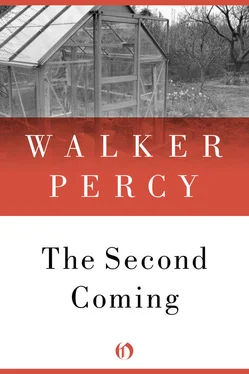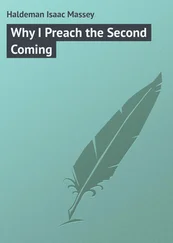Stop trying to make sense of my nonsense.
My mother refused to let me fail. So I insisted.
Sarge: spending week with him at Nassau doing what I pleased or what I thought of as doing as I pleased. Sarge, a thin mustachioed blond Balfour salesman (fraternity and sorority jewelry) from Durham, who knew his catalogue of pins and drop letters and crests so well he had won a salesman-of-the-month trip to Nassau. Tickets for two. I, not a sorority sister, Sarge not a fraternity man, but he “pinned” me with four different pins, Chi O, Phi Mu, KD, Tri Delt, and we thought that was funny. Sarge always going by the book, Sarge and I in bed looking at a picture book and he doing the things in the book with me he thought he wanted to do and I doing the things I thought he wanted me to do and being pleased afterwards then suddenly knowing that the main pleasure I took was the same as doing well for my father: look at my report card, Daddy, straight A’s, A Plus in music.
But what do you do after you get your straight A’s for Daddy and Sarge?
Drugs: not bad. In my bed in Front Street apartment or in closet, getting out of it with yellowjacks and going down down down toward it, Sirius or the black hole, but not really, only seeming to, because when you come out of it you’re nowhere, not an inch closer to Sirius, not out the other side of the black hole but just back where you were, only worse, like dreaming that the plane has taken off and it never does. But drugs not bad if you don’t have to come off drug and come back. Because: drugs = illusion of going down down down to it, and if there is no it, the illusion is better than nothing.
One thing is sure. Never again will they lock me up and buzz me.
The sun shone straight down the cellar steps, warming her back. While she ate a sandwich of rye bread and cheese and sliced luncheon meat, her gaze wondered from the stove to the finials on the greenhouse to the dog. How could she keep meat cold? She gave the dog the luncheon meat. While he chewed it, he was able to meet her eye, giving himself leave to watch her, cocking first one eyebrow then the other at her. As long as he chewed, he could look at her. When he finished, he licked his chops and settled his complex mouth but his lip stuck high and dry on a tooth. It embarrassed him. But the dog’s embarrassment did not embarrass her. Wasn’t this a good sign?
All next morning from sunrise to the noon she worked in the greenhouse. What to do and where to start? Clean out the jungle. Start in the corner near the door, which as soon as the sun hit it began to smell of florist damp and root reek and rain forest. Could those be orchids gone to seed in big wire baskets hanging from the roof or some kind of air-feeding lianas trailing down like snakes?
At first she thought the laurel and rhododendron had fallen through the rotten benches and rooted in the earthen floor, but the floor under an inch of mulch was concrete. Take hold of a small tree and up it came easily with its flat fan of roots. The trouble was getting the junk out. Bush, tree, bench she dragged out and pushed into the fen. Using a piece of copper flashing from the ruins, she shoveled out root rot and potsherds, and by the time she got hungry, she had cleared a quadrant of concrete ten or twelve feet on edge. Sitting in the sun with the dog, she ate again and brushed the floor lightly with her freehand: good solid old trowel-smoothed uncracked cured concrete, iron-colored and silky as McWhorter’s driveway. Two more items for her shopping list: broom, shovel.
Tired, she curled up in her bunk and fell immediately to sleep with only time to think: God, I am going to sleep without a pill! — and woke as suddenly. What woke her? The violet vapor from the glass grapes falling straight in her eye? No, the dog had barked. Or rumbled a deep throat rumble. He was sitting up, ears erect, hackles bristling along his spine like a razorback hog.
Someone was coming down the trail.
It was a troop of Girl Scouts, all but one hefty, most fat. They had shoulder patches which she could not make out. The fattest girl and the thinnest girl carried between them a banner which rippled but she could make out: Troop 12, Laf—? In—? Lafayette, Indiana? Surely Girl Scouts couldn’t be older than fourteen or fifteen, yet they looked at least twenty and bigger than life. Their legs were like trees.
The fattest girl had straight blond hair that came straight down over her ears like eaves, like Kelso’s.
Kelso grabbed her in the dayroom.
I know where you’re going.
She did. Kelso knew everything.
You got visitors. Your folks come to see you. What they doing here? They only been here twice. Maybe they come to take you out of here. How come they keep you here? Don’t they know what a dump this is? Don’t they know they don’t buzz you any more at good hospitals? You want to know what this place is for? This is for people who are too proud to go to state and too poor or stingy to go to a good private hospital. You want to know what it costs them here to keep us? Less than half what it does at state. They making money on us, honey.
Kelso had been at Valleyhead for fifteen years. When she was not too sick, she was canny and told the truth, but one look at her and you knew she could not make it for long in the world. There was no place for her to go. She was smart and had been a bookkeeper with Sears, but that wasn’t enough. Sometimes she went to Atlanta, to her parents’ house. Though she sounded countrified and looked like a fat lady running a service station in south Georgia, her father had a big house in Druid Hills. But she always came back fatter than ever, stiff as a board and obedient, hair coming straight down all around her head like a funnel. So stiff and obedient that once McGahey told her to sit down and she sat for hours until McGahey noticed there was no chair under her.
Isn’t your father a doctor, Allie?
She shook her head.
A dentist, right. He could afford it. Maybe they taking you out.
She shrugged.
You could make it, babe. You’re a smart cookie and you know how to get along if you wanted to. How come you don’t try?
She shook her head.
I saw them coming in, all dressed up. They must be passing through.
She shrugged.
Talk to me, babe.
Okay, Kelso. (She jumped. Her voice sounded strange.)
Kelso laughed. I know why you don’t talk. You so scared, you can’t talk. I’m so scared I eat all the time. Now that’s something. I’m so scared I get stiff so they’ll buzz me. You’re so scared you play dumb so they’ll buzz you. Maybe we’re crazy ha ha. But you’re crazy like a fox. Come here, babe, I’ll give you a hug.
Kelso gave her a hug.
You think I’m pretty, Allie?
She nodded and smiled.
You’re pretty too, honey. You’re going to make it.
She smiled and gave Kelso a hug.
Kelso, you are right about my parents. They were going somewhere. To a party evidently. Her mother was aglow in the drab little parlor next to Dr. Duk’s office, tan skin glowing (and unbranny) against creamy linen, real old-fashioned linen with irregular weave, gold streak in her hair swept straight across her forehead, giving as always the effect of dash and motion even when she was still, gold aglow at her ears and wrists. Even sitting still she shimmered. Gold glinted. Her father in his candy-striped seersucker smiled and nodded, crouched in his chair, feet drawn under the chair and springing slightly. The two of them blew in like tropical birds. Dr. Duk in his tacky double knits and me in my T-shirt and jeans look like inmates and, she fancied, smell slightly sour.
They were going to a party but they came mainly to see her, they said. They had plans for her. They argued about the plans. There was this pleasant sense of plans being made for her, like her mother putting her on a plane for summer camp: now here’s your money and here’s your schedule and here’s what you do during the three-hour layover in Atlanta. .
Читать дальше












